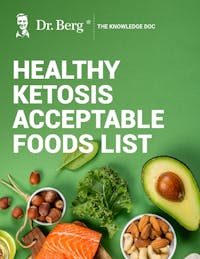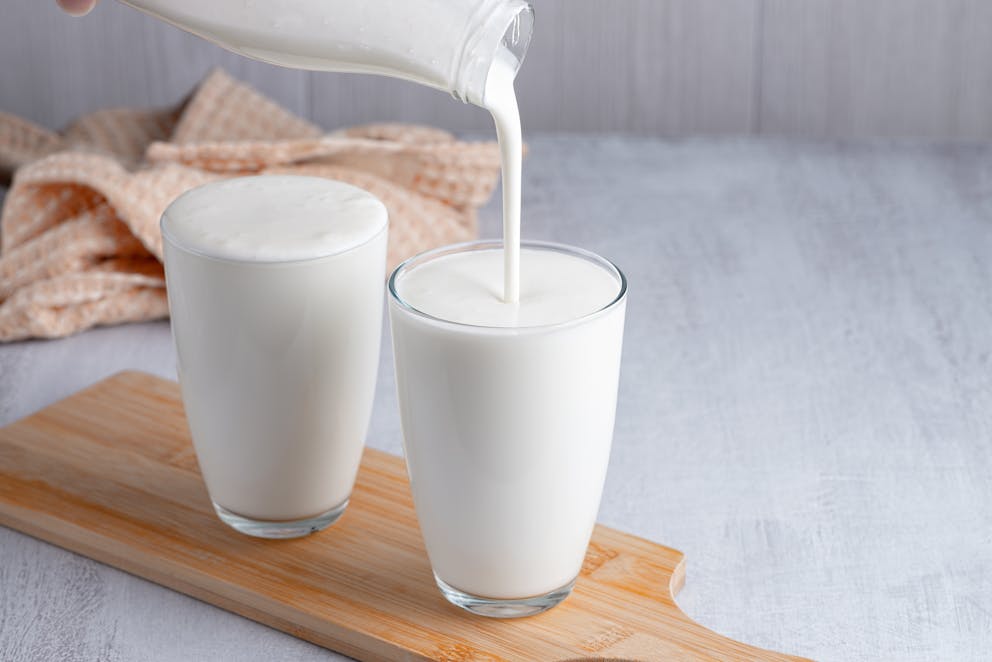Dairy and Your Menstrual Cycle and Female Hormone

Healthy Keto Acceptable Foods List
Explore a comprehensive list of foods and beverages that align with Healthy Keto®
Identify which foods support fat-burning and metabolic health
Discover nutritious options for fats, proteins, and vegetables to support your health goals
Learn about common foods that aren’t Healthy Keto-approved

Healthy Keto Acceptable Foods List
Explore a comprehensive list of foods and beverages that align with Healthy Keto®
Identify which foods support fat-burning and metabolic health
Discover nutritious options for fats, proteins, and vegetables to support your health goals
Learn about common foods that aren’t Healthy Keto-approved

Healthy Keto Acceptable Foods List
Explore a comprehensive list of foods and beverages that align with Healthy Keto®
Identify which foods support fat-burning and metabolic health
Discover nutritious options for fats, proteins, and vegetables to support your health goals
Learn about common foods that aren’t Healthy Keto-approved

Healthy Keto Acceptable Foods List
Explore a comprehensive list of foods and beverages that align with Healthy Keto®
Identify which foods support fat-burning and metabolic health
Discover nutritious options for fats, proteins, and vegetables to support your health goals
Learn about common foods that aren’t Healthy Keto-approved

Healthy Keto Acceptable Foods List
Explore a comprehensive list of foods and beverages that align with Healthy Keto®
Identify which foods support fat-burning and metabolic health
Discover nutritious options for fats, proteins, and vegetables to support your health goals
Learn about common foods that aren’t Healthy Keto-approved

Healthy Keto Acceptable Foods List
Explore a comprehensive list of foods and beverages that align with Healthy Keto®
Identify which foods support fat-burning and metabolic health
Discover nutritious options for fats, proteins, and vegetables to support your health goals
Learn about common foods that aren’t Healthy Keto-approved

How to Read Your Body
Learn to recognize common symptoms and uncover their underlying health issues
Understand the signs of nutrient deficiencies to manage your health
Explore the four metabolic body types and the core factors that influence them
Interpret your body's signals from head to toe to identify potential health concerns

How to Read Your Body
Learn to recognize common symptoms and uncover their underlying health issues
Understand the signs of nutrient deficiencies to manage your health
Explore the four metabolic body types and the core factors that influence them
Interpret your body's signals from head to toe to identify potential health concerns

How to Read Your Body
Learn to recognize common symptoms and uncover their underlying health issues
Understand the signs of nutrient deficiencies to manage your health
Explore the four metabolic body types and the core factors that influence them
Interpret your body's signals from head to toe to identify potential health concerns

How to Read Your Body
Learn to recognize common symptoms and uncover their underlying health issues
Understand the signs of nutrient deficiencies to manage your health
Explore the four metabolic body types and the core factors that influence them
Interpret your body's signals from head to toe to identify potential health concerns

How to Read Your Body
Learn to recognize common symptoms and uncover their underlying health issues
Understand the signs of nutrient deficiencies to manage your health
Explore the four metabolic body types and the core factors that influence them
Interpret your body's signals from head to toe to identify potential health concerns

How to Read Your Body
Learn to recognize common symptoms and uncover their underlying health issues
Understand the signs of nutrient deficiencies to manage your health
Explore the four metabolic body types and the core factors that influence them
Interpret your body's signals from head to toe to identify potential health concerns
Not many people realize how the consumption of dairy products can significantly influence the menstrual cycle.
Learn about the role hormones in dairy play in your monthly cycles and what steps you can take to improve your hormone balance.
The Impact of Dairy on the Menstrual Cycle
It's no secret that dairy products, especially those from cows, are rich in estrogen.
Realizing the possible issues that can arise from having an excessive amount of estrogen in your body because of external elements due to dairy products being high in this hormone should not be taken lightly.
Understanding the Role of Estrogen in Dairy
Estrogen is a naturally occurring hormone found in both humans and animals. It plays crucial roles, such as regulating menstrual cycles and aiding in the development of secondary sexual characteristics.
However, when consumed excessively through dairy products like cow's milk, it could potentially disrupt hormonal balance, leading to irregularities with menstruation.
Research indicates that cow's milk contains significant amounts of female sex hormones, which might influence a woman's menstrual cycle, particularly if she has high levels present within her system.
This is mainly due to exposure to pesticides and insecticides that mimic these hormones.
How Excessive Consumption of Dairy Affects Menstrual Cycles
An overconsumption of dairy products can contribute significantly to elevated estrogen levels beyond what is considered normal for women during their reproductive years.
Excess estrogen levels, often caused by overconsuming dairy products, can lead to irregular periods, heavy bleeding, and painful cramps associated with endometriosis and PCOS.
In some cases, reducing consumption and switching to alternatives like almond or coconut milk can help alleviate these symptoms.
Studies have shown that plant-based diets lower the risk of developing chronic diseases and improve overall health outcomes, including menstrual function.
If you are experiencing changes in your menstrual cycle after consuming significant quantities of cow's milk, it may be advisable to seek guidance from a nutrition specialist to evaluate whether dietary adjustments are necessary.
Digestive Issues Related to Dairy Consumption
Comprehending the influence of specific foods on our health and nutrition is essential. One such food group that is often confused is dairy products. Let's delve into two key issues related to consuming these - lactose intolerance and casein allergy.
Lactose Intolerance: A Common Digestive Issue
Lactose intolerance, a condition where an individual lacks sufficient enzymes (lactase) for digesting lactose in milk, can lead to uncomfortable digestive symptoms like bloating or diarrhea after dairy consumption.
In contrast with true food allergies, which involve immune system reactions, lactase deficiency does not trigger immunity but results from insufficient production within gut lining cells, leading to an inability to break down consumed sugars properly.
The Casein Allergy Conundrum - Decoding A1 & A2 Proteins
Apart from lactase insufficiency, another form of sensitivity against cow's milk involving proteins called caseins exists.
Specifically, the 'A1' type among them has been linked to various health concerns, including inflammation, heart disease, and even Type 1 diabetes, particularly among those genetically predisposed to the same.
This issue, however, doesn't apply universally across the board since breed-specific differences exist regarding the relative proportions between 'A1' and beneficial 'A2' variants found naturally occurring in milk produced by different cattle types worldwide.
For instance, Jersey cows yield higher levels of the latter than the usual Holstein breeds used commercially in most parts of the world today,
thereby offering potentially safer alternatives for consumers sensitive to the former kind of protein sources already present in their diets.
Suppose you've noticed unpleasant effects after consuming cow's milk but don't appear to have a problem digesting other kinds (goat/sheep). In that case, chances exist that you're reacting specifically against the 'A1' type rather than general dairy.
The solution could lie in seeking out these alternative options instead, as they usually possess lower quantities of the troublesome component while
Quality of Cow Feed & Its Effects on Milk Products
The dietary intake of a cow, particularly concerning GM grains such as soy and corn, is essential for ascertaining the quality of milk generated.
Risks associated with GMO grains used for cow feed
Cows fed GM grain diets can produce milk products tainted with glyphosate residues. Consuming glyphosate over time may be linked to various health issues, such as cancer, liver disease, and reproductive difficulties.
Beyond this risk lies another concern: omega-6 fatty acids. The high presence of these inflammatory agents in the milk from cows consuming GM feeds poses additional health risks for consumers.

Benefits of choosing organic dairy products
One might consider opting for organic dairy alternatives to mitigate these potential dangers linked with conventional farming practices involving GM feeds.
Organic standards stipulate that cows must be given access to pastureland while nourishing through organically grown feed devoid of synthetic pesticides or fertilizers.
This translates into not only safer but also nutritionally superior options as compared to their conventionally farmed counterparts, precisely due to higher levels of Omega 3s, conjugated linoleic acid (CLA), and vitamins A&E.
It's worth noting that CLA has been connected to various positive impacts on overall well-being, such as enhanced immune system function and weight loss support.
Making Informed Choices about Dairy Consumption
In light of hormonal imbalances experienced during menstruation, goat cheese, and sheep cheese could prove beneficial thanks to the lower quantities of A1 protein they contain compared to traditional cow's milk, thus reducing potential risks.
However, dietary preferences and personal health concerns should always factor into the decision-making process around the type and source of dairy consumed, regardless of whether you're facing hormone-related problems.
This conversation underscores the need to fully understand how your food is sourced and what goes into its production before making any decisions that ultimately lead to healthier lifestyle choices.
Everyone is different, so consult a healthcare professional or registered dietitian for guidance tailored to your individual needs and circumstances.
Considerations When Choosing Your Source of Milk
The source of your dairy products plays a crucial role in their impact on health, particularly during menstruation. The difference between the practices employed by Mongolian and American dairies can influence the nutritional profile and the milk's hormonal content.
A Comparison Between Mongolian and American Dairying Practices
Mongolia's traditional pastoral farming allows cows to graze freely on diverse natural vegetation, resulting in nutrient-rich milk. This contrasts with industrialized methods used by many US farms where cows are often confined indoors and fed primarily corn or soy-based feed.
While this boosts production efficiency, it may compromise animal welfare standards and potentially lower the nutritional value of the milk produced.
The Importance of Knowing About Farming Practices While Sourcing Dairy
Farming conditions directly correlate with nutrients and potential hormone levels found in milk, which could subsequently affect menstrual cycles, among other aspects of health.
Research indicates a connection between high-cortisol food consumption - standard when animals experience stress - leading to various issues, including cardiovascular disease risk factors.
In addition to hormone level considerations, antibiotic use should be considered, too, especially for factory-farmed livestock, which commonly receive antibiotics due to crowded living environments (CDC).
Residual antibiotics in non-organic dairy products might contribute to growing global concern over antibiotic resistance.
Alternatives to Cow's Milk During Menstruation
If you're experiencing hormonal problems related to menstruation, goat or sheep cheese could be beneficial since they contain fewer quantities of A1 Protein than cow's milk, reducing associated risks.
Benefits of Consuming Goat or Sheep Cheese During Menstruation
Evidence suggests that cheeses from goats and sheep have less A1 protein than cows, making them more digestible if one has lactose intolerance or casein allergy. This factor alone makes these options better suited for people sensitive toward the regular cow.

Exploring Alternatives to Cow's Milk During Menstruation
Hormonal issues during menstruation can be quite challenging. As such, it may prove beneficial to consider alternatives to cow's milk, like goat cheese or sheep cheese, due to their lower quantities of A1 protein.
The Advantages of Goat or Sheep Cheese Consumption During the Menstrual Cycle
Opting for goat or sheep cheeses over traditional cow's milk offers many benefits, especially for those grappling with menstrual cycle-related problems. These include reduced digestive complications and inflammation, often linked to high levels of A1 protein in cow's milk.
Nutritional Benefits: Besides being low in lactose content, goat and sheep cheeses offer an impressive nutritional profile, including essential nutrients like calcium and vitamin D that support bone health - crucially important as women age.
Ethical Farming Practices: Most importantly, perhaps, is the psychological comfort derived from knowing your food choices align more closely with ethical farming practices where animals aren't subjected to harsh conditions commonly found in industrialized dairy farms.
Balanced Omega Fatty Acids Ratio: A balanced ratio between omega-6 fatty acids (pro-inflammatory) versus omega-3 fatty acids (anti-inflammatory) present in these alternative sources might alleviate some symptoms related to menstruation, such as bloating and cramps caused by inflammatory processes within our bodies. However, further evidence is required to confirm this hypothesis.
Ashwagandha Benefits for Menstrual Cycle
Ashwagandha offers a range of benefits for females, including support for a healthy menstrual cycle. This adaptogenic herb has been traditionally used to balance hormones and promote overall well-being during menstruation.
Studies suggest that ashwagandha may help regulate menstrual cycles, reduce pain and discomfort, and alleviate symptoms like bloating and mood swings.
Its ability to modulate cortisol levels may contribute to a more balanced hormonal response during this time. As a natural remedy, ashwagandha benefits for females extend beyond menstrual cycle support, offering a holistic approach to hormonal health.
Women seeking to enhance their menstrual well-being may consider incorporating ashwagandha into their routine after consulting with their healthcare provider to explore its potential benefits.
Conclusion
Understanding the connection between Dairy and Menstrual Cycle is crucial for women's health. The hormones in dairy, particularly estrogen, can influence your monthly cycles. Digestive issues related to lactose intolerance or casein allergy can further complicate matters.
The quality of cow feed impacts our milk products' nutritional value and safety level. Organic options are a safer choice than non-organic, which can be affected by many different chemicals and added hormones.
If you're experiencing hormone-related problems during menstruation due to dairy consumption, alternatives such as goat cheese or sheep cheese could be beneficial. They offer lower quantities of A1 protein than cow's milk, thus reducing the associated potential risks.
Previous blog
Cant Lose That Last 20 Pounds No Matter What You DoTags

Popular
08/21/2024
53.6K views
02/23/2025
45.4K views
11/18/2024
270.1K views
03/18/2024
11/21/2022




